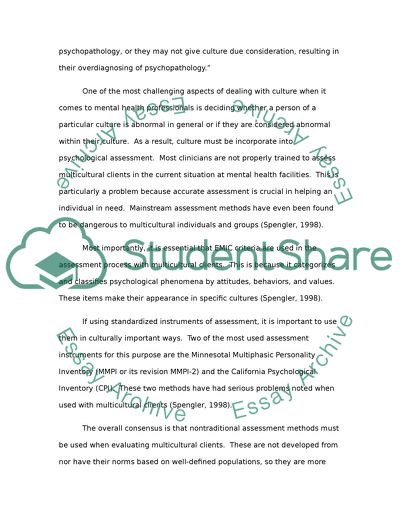Psychological Assessment Model Essay Example | Topics and Well Written Essays - 500 words. Retrieved from https://studentshare.org/miscellaneous/1570248-psychological-assessment-model
Psychological Assessment Model Essay Example | Topics and Well Written Essays - 500 Words. https://studentshare.org/miscellaneous/1570248-psychological-assessment-model.


